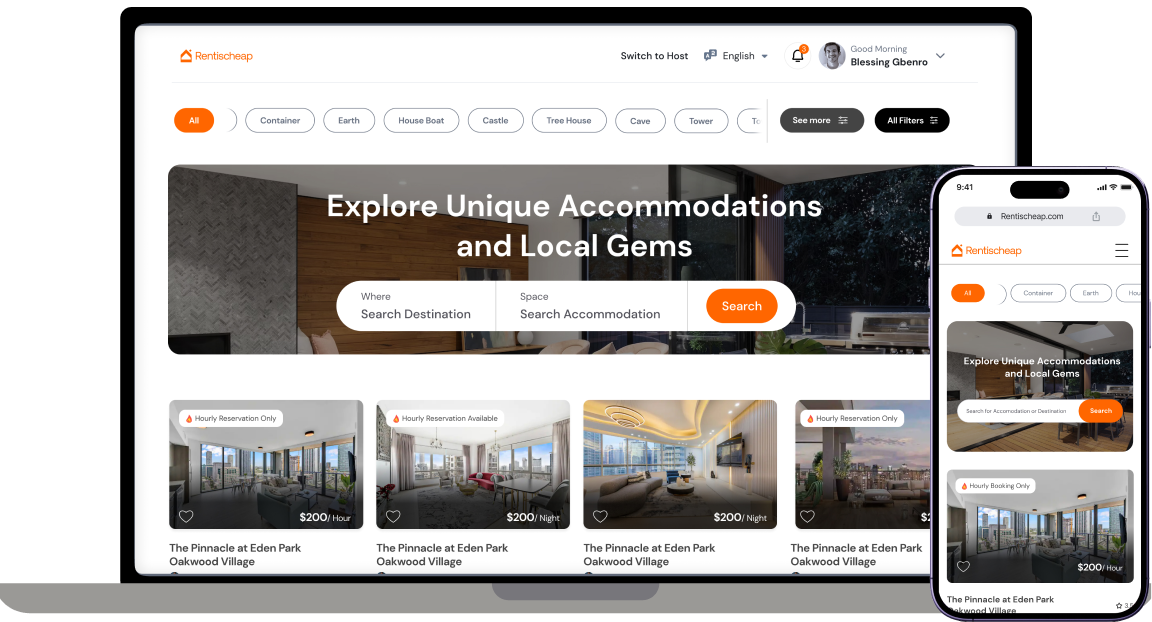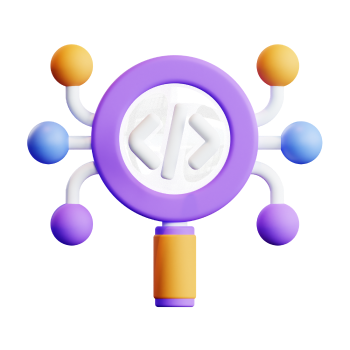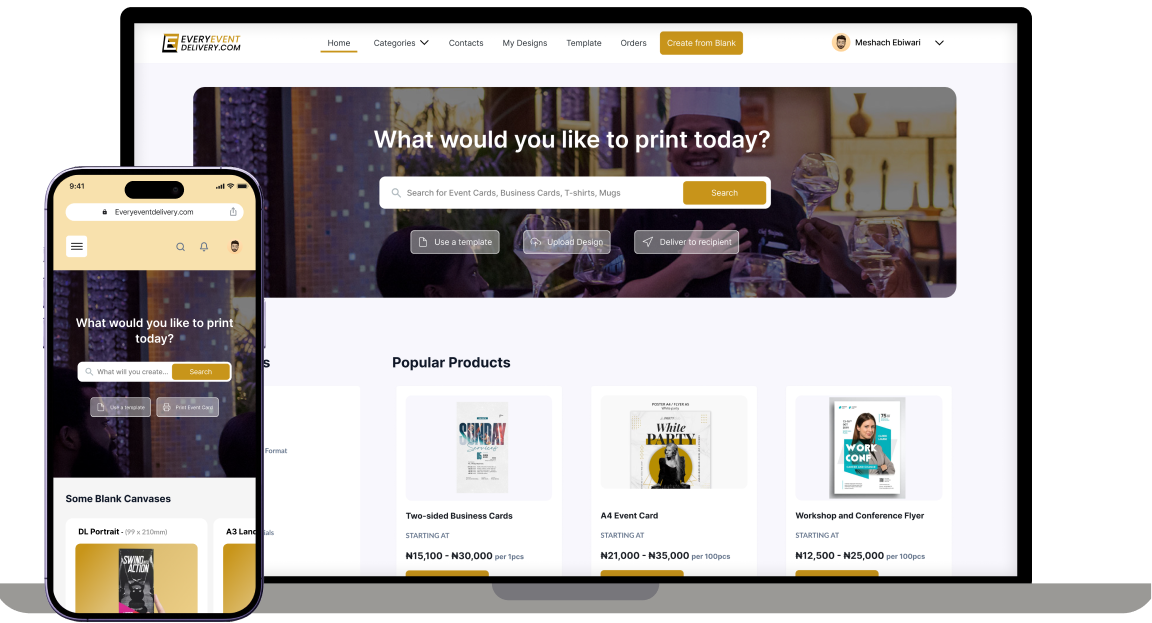Accommodation Booking and Listing Platform for Rentischeap
Rentischeap.com is an Rethinking short-and long-term homestays experiences globally.


We are a leading custom software development agency focused on web, mobile app development & SaaS application development & MVP Development.
At Mobirevo, we provide next-generation enterprise software development for the web, mobile, and desktop to streamline business processes and improve the customer experience. Our cutting-edge web and mobile solutions improve business agility and efficiency. Utilize our team's combined experience in enterprise software engineering, API integration, enterprise software development services, legacy system modernization, enterprise web software development, and app portfolio consolidation. We assist large organizations in becoming long-term global success stories by re-engineering solutions of varying complexity.


Enterprise application software (EAS) is computer software designed to meet the needs of an organization rather than individual users. Businesses, schools, interest-based user groups, clubs, charities, and governments are examples of such organizations. Enterprise Software Development is a multi-disciplinary approach that frequently includes functions such as BI (Business Intelligence), CRM (Customer Relationship Management), operations and order fulfillment, online payment processing, and accounting, etc.
Workflow tools are an excellent example of business software that is so good that some companies include them as an essential, inherent need of the company. There are many examples of this type of solution, some of which include Trello, WorkFlowGen, and tools like Slack. If you need to automate tasks such as task assignment, management, and control, having a team that develops a tool similar to this one but tailored to your specific needs may be the best thing that ever happened to you.
CRM, or Customer Relationship Management (CRM) software, is another example. With this type of business software, you want to have a database of all of your company's customers and potential customers, as well as contact information for them. If it is in person, by phone, or through social media platforms, as well as the date and time you last communicated with them, as well as any attention or history you have with each customer. Workflow automation, dedicated document libraries, role-based user access, multi-currency support, email integration, and tracking, lead capture from websites, and custom reporting are typical features of the best CRM services.
Sisense is a tool that can also be customized for your business. Almost any tool that helps you automate your company's processes or increase productivity. This is completely personalized. Not all businesses have the same requirements or carry out the same activities. When it comes to Enterprise Software, there are no bounds.
Custom Enterprise Software Development
Scalable software that improves key aspects of your business infrastructure can aid in the maintenance of your business infrastructure. Get access to our industry-renowned knowledge to help you design, build, and scale your new enterprise software solution.
Enterprise Mobility Services
Our end-to-end enterprise mobility solutions enable organizations to manage the extensive use of mobile devices that can support a large number of users in their business environment safely and efficiently.
Digital Transformation Services
Mobirevo is a trustworthy partner in digital transformation. Utilize our expertise in the use of digital technologies to develop new or modify existing business processes to meet changing market demands.
Data Administration
Using our in-depth knowledge of emerging technologies such as Data Science, Big Data, Cognitive Computing, and Blockchain, we can help you stay ahead with an effective data management strategy, intelligent automation, and predictive analytics.
Software Integration
Improve your software infrastructure by implementing well-designed microservices, a dependable API, and data integration. Start your business strategy with our comprehensive enterprise app integration solutions and enterprise app development.
Legacy Application Modernization
Outdated software poses far greater risks and can be costly to maintain. Engage our best minds to conduct an in-depth feature and technical analysis of your legacy solution and improve it with cutting-edge tools and technologies.

The term "enterprise software architecture" refers to an architecture designed to organize the growth and development of an enterprise's information technology (IT). It focuses on the long-term evolution of IT systems rather than just the procedures that are currently in use. The quality of the enterprise software architecture implemented is critical in determining the success of an organization. Enterprise software architecture can be used to reduce system complexity and thus improve overall efficiency. Organizations looking to improve major IT systems look for specialized enterprise IT architects.
Enterprise software architects consistently aim to increase the system's agility by refactoring existing solutions. Enterprise software architecture is closely aligned with an organization's internal structure, business model, and processes. Enterprise software architecture should have the following characteristics to improve speed and functionality:
Simplicity
To facilitate effective communication among key team members, it should be simple. Many people with diverse perspectives, skill sets, and roles in the software industry are involved in determining the structure and specification of enterprise software.
Overall Flexibility and Maintainability
We present the project concept by defining the core features of the project and developing information architecture. After we've completed our research, it's time to begin designing; however, we like to keep our clients involved throughout the design process. This means that we will create preliminary concepts of your design for you to review before proceeding with the entire project.
Reusability
Reusability can be achieved by creating an inventory of valuable building blocks and reusing them regularly. Reusing reduces development and maintenance costs. This can be accomplished by including standard functionality in code libraries that are used across multiple projects.
Technology and Functionality Decoupling
An efficient architecture promotes technological independence. It should decouple the long life cycle of the business application landscape from the shorter innovation cycles of the underlying technology. Furthermore, long-lasting architecture must adapt not only to technological changes but also to the actual life cycles of the implemented technologies.
Building effective CI/CD pipelines is at the heart of enterprise software development best practices. The goal is to create an iterative, ongoing system that merges all developers' working code into a shared repository (CI) and ensures code can be easily released at any time, even as it changes constantly (CD). The pipeline is the deployable unit path once CI and CD are integrated. Pipelines are triggered when code changes are committed to a shared repository. Build, the five stages of testing, version control, and, finally, deployment are common pipeline steps.
This is significant because it ensures that software is only deployed when it is "ready," which means that there are no known bugs or vulnerabilities and that the software will perform as expected.

01
Automate All Software Testing Phases
First and foremost, your organization will want to automate all phases of software testing. Software testing is an essential component of the software development lifecycle because it ensures that your software is ready for deployment. There are numerous types of testing, but there are five major categories of testing that can be automated. Here's a quick recap:


Integration Testing
First and foremost, your organization will want to automate all phases of software testing. Software testing is an essential component of the software development lifecycle because it ensures that your software is ready for deployment. There are numerous types of testing, but there are five major categories of testing that can be automated. Here's a quick recap:

Functional Testing
Functional testing determines the quality of software by ensuring that all required features meet the formal test scripts. When functional testing is finished, the results are compared to the expected results from the environment. If this type of testing is not carried out, functional flaws may not be discovered until the software has been deployed.

Acceptance Testing
Acceptance testing is a method of ensuring that the correct software was created to meet the needs of the end-user. You can send the software down two different paths in automated testing. One path represents the ideal scenario, in which the user completes all of the steps correctly and the software performs as expected. In another scenario, there is an error (for example, the user forgets to fill in a necessary form). This testing determines how the software would perform in less-than-ideal conditions and how they can be improved.

Quality Control
Quality control is carried out to ensure that all non-functional requirements are met. The goal of non-functional testing is to improve the product's reliability, usability, and maintainability. Quality testing examines how the system operates rather than how the software behaves as a whole.

Staging Testing
Staging testing is the final type of testing and should be completed after the software is deemed ready for deployment. Staging testing ensures that the software can be deployed in an environment similar to the production environment. You will be able to create a seamless and effective testing plan if you understand the distinct requirements of each stage.
02
Ensure Security Throughout the Process
Throughout the software development lifecycle, auditing and compliance should be a top priority. The last thing a company wants is for their confidential data to fall into the hands of the wrong people. While compliance issues can be time-consuming and frustrating, ignoring them can have serious consequences such as data breaches, audit failures, and a loss of brand reputation.
03
Never Let One Person Have the Deployment Key
When establishing a deployment process, your organization will never want just one person to have access to the deployment keys. User approvals can be set up in BuildMaster to ensure that only certain users can send a build to deployment. This increases security and ensures that builds are only released when they are complete. Furthermore, you don't want just one person to understand how to deploy a build. This can cause issues if a user leaves the company or goes on vacation during a time when a deployment is required. By carefully documenting deployments, you ensure that other users can step in and deploy a build when necessary.
04
Properly Manage Your Applications
To keep your applications safe, predictable, and confidential, make sure your organization's applications are properly managed. This includes using universal packages and not storing your software solely in public repositories. Users can easily package applications and components with Mobirevo's ProGet. ProGet enables you to use universal packages to distribute your applications and containers uniformly. ProGet also integrates with Docker images for containerized software.
Furthermore, ProGet enables you to build a dependable infrastructure on your servers or in the cloud, allowing you to replicate feeds across different ProGet instances around the world to allow different teams to share feeds without the need for complicated global infrastructure.
05
Make Certain You're Load Balancing
Additionally, load balancing is critical for organizations to ensure server uptime. High-traffic websites must juggle millions of concurrent requests in today's computing. Enterprise software development best practices recommend adding more servers to handle these requests more cost-effectively. Load balancers ensure that your servers do their jobs (routing client requests) while maximizing speed and capacity and ensuring that no single server is overworked.
The process of efficiently distributing incoming network traffic across a group of backend servers is known as load balancing. When more servers are added to a system, the load balancer automatically sends requests to these new servers. Load balancing is important because it enables businesses to work collaboratively without incident.
06
Reduce Configuration Drift Between Teams and Locations
In an ideal world, configurations across developers' environment servers would be consistent. However, as new features are introduced, changes are made to the hardware and software infrastructures regularly. As a result, infrastructures differ across environments. Ignoring configuration drift has several serious consequences that you should avoid. Security breaches and security outages are two of the consequences of configuration drift. Furthermore, configuration drift can lead to a poor user experience and a lack of visibility into the impact of changes.
Otter from Mobirevo ensures that applications run properly by minimizing configuration drift. Otter continuously monitors your servers for configuration changes and alerts you if there is any drift. Servers can be configured to automatically remediate drift, or you can schedule remediation and other configuration changes as needed.
07
Keep Versions Organized
Your organization will want to keep versions organized to ensure that all developers are working on the same version of a build. The process of recording changes to a file or set of files over time so that versions can be recalled and altered is known as version control.
08
Use the Most Up-To-Date Tools
DevOps is a relatively new methodology, which means that new technologies and tools are constantly appearing in the industry. Organizations must keep up with the latest tools and practices to remain competitive. DevOps tools are classified into several categories, including automation tools, configuration management tools, and enterprise applications development tools. While the number of available tools can be overwhelming, we have created a blog on how to evaluate tools to assist you.
Mobirevo can assist you in implementing enterprise software development best practices. Creating a new application can be a time-consuming and overwhelming process. Fortunately, several best practices can assist your organization in reaching its full development potential. Software development will become less complicated if these enterprise application best practices are followed. Mobirevo DevOps tools save developers time, reduce release risk, and enable stakeholders to bring their vision to life more quickly. All with the people and technology you currently have.


We are a leading custom software development agency focused on web, mobile app development & SaaS application development & MVP Development.

If you're considering developing custom enterprise software for your company, you're probably wondering, "How much will this cost my company?" That's an excellent question, but it's difficult to answer because it depends. Most custom enterprise software projects, in our experience for small-to-medium-sized businesses, cost between $75,000 and $750,000 to design, develop, and implement the application. To understand where you fall on the cost spectrum, you must first understand the factors that influence the cost.
A significant investment, to be sure, but a properly implemented custom enterprise software solution will quickly pay for itself. If your budget falls somewhere in that range and matches the size figures shared above, with allowances made for the factors that typically increase cost, it can be developed to your budget. To understand where you fall on the cost spectrum, you must first understand the factors that influence the cost. Here are a few of the factors that will influence how much you will likely pay for your custom enterprise software solution:
1. Size of the Software:The cost of a custom enterprise system is determined by the size of the software program. Enterprise projects are typically for corporations, fast-growing mid-sized businesses, or well-funded startups, so it stands to reason that these software programs are large, must support a large number of users, and have many pages or screens, raising the price.
2. Integration of Third-Party Software:Integrating with third-party software introduces a large number of unknown variables into the equation.
You just don't know how well the other system allows information in or out, or what obstacles you must overcome. Integrations can be simple at times and extremely difficult at others. Payment providers such as PayPal and Authorize.Net, for example, are extremely simple to integrate with. The same is true for Equifax and Experian credit check services. However, older or less well-known systems may pose a challenge and raise the project cost.
3. Implementation:It is critical to carefully consider who will be assisting you with your implementation. Some custom software development firms provide implementation services and support, while others create the software and leave you to fend for yourself in terms of support. You must discuss with your development team whether or not they provide support services and that you plan for what will happen once the software is in your hands. Planning and organizing your project, training, prototyping functional areas of your business, installing the software, configuring the system, implementing process changes, and completing conversions are all covered by implementation costs.
4. Training:Have you considered who will train your employees on how to use your new system? When discussing the overall cost of enterprise software development, it is necessary to discuss training. Using any new software can be difficult, especially for those who are unfamiliar with using an enterprise solution or who are not as technologically savvy as others. There are some upfront costs associated with training your employees on how to use the system properly. There are also costs associated with continuing education, particularly on-site training when required. Inquire with your development team about the training services they provide and include the cost in your budget.






We are a leading custom software development agency focused on web, mobile app development & SaaS application development & MVP Development.
Rentischeap.com is an Rethinking short-and long-term homestays experiences globally.

Sabiprints transforms your vision into stunning prints, offering design, customization, sull-spectrum printing, and delivery services and comprehensive print solutions—all in one place.

Free Business and Technology insights
Copyright © 2022 Mobirevo Software & Technologies LTD a company duly registered with CAC with RC Number: 1756190. All rights reserved.